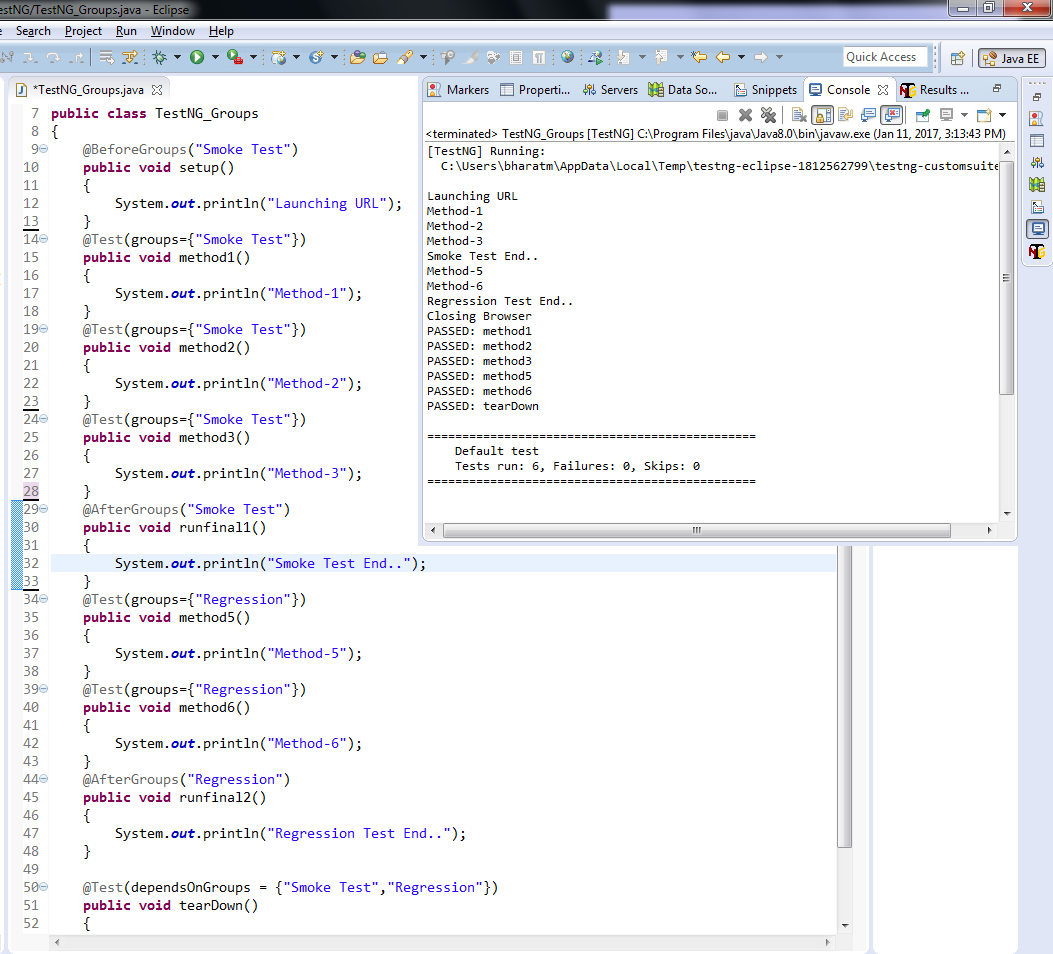Suppose I have five test cases out of which three are grouped in "Smoke Testing" and two have not been grouped at all.
If I have set priority for all my test cases from 1 to 5, will the cases from smoke testing group be evoked in priority?
@Test (priority=3, groups={"Smoke Testing"})
p v Test1(){}
@Test (priority=1, groups={"Smoke Testing"})
p v Test2(){}
@Test (priority=2, groups={"Smoke Testing"})
p v Test3(){}
@Test (priority=5)
p v Test4(){}
@Test (priority=4)
p v Test5(){}
What will happen if I want to add another group XYZ and added test cases like:
@Test (priority=2, groups={"XYZ"})
p v Test6(){}
@Test (priority=1, groups={"XYZ"})
p v Test7(){}
